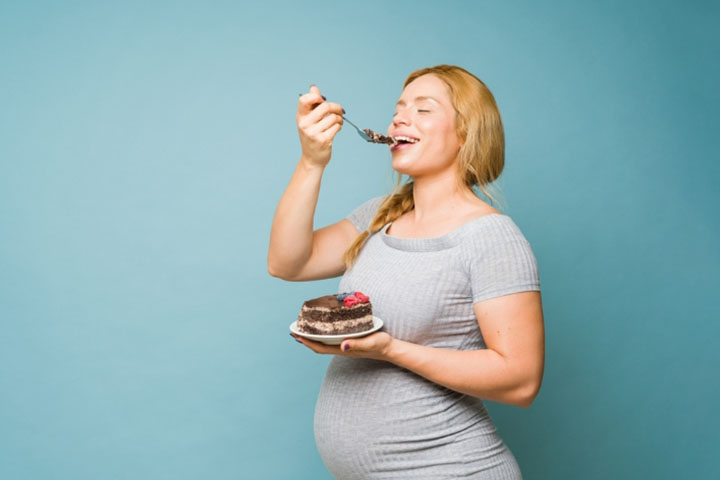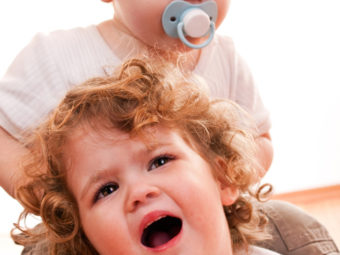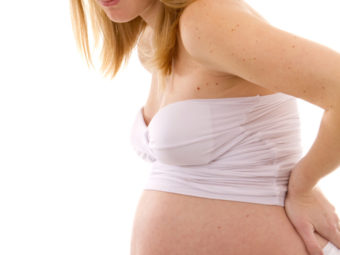
Image: Shutterstock
Bringing a new life into the world is a magical journey, but for those battling with eating disorders, the path can be an emotional rollercoaster. It might bring forth unforeseen complications and fuel old anxieties. Let’s dive into how this beautiful phase can impact those with eating disorders, the hurdles they might face, and how to navigate this complex journey. Read on to know more!
How Can Pregnancy Stir An Eating Disorder?
Pregnancy tends to stir up a whirlwind of emotions and changes in the body. For someone with a history of an eating disorder, these changes can be overwhelming. The weight gain, body transformations, and the pressure to ensure the baby’s health can reignite old feelings of control and insecurity related to food and body image.
Complications That Come With Eating Disorders During Pregnancy
Image: Shutterstock
The complications of an eating disorder during pregnancy can be twofold. Firstly, the mother’s health might be at risk due to nutritional deficiencies or other physical complications associated with disordered eating. Secondly, the baby’s health might be affected, leading to low birth weight, preterm birth, or developmental issues.
Recognizing The Signs: Is Pregnancy Fueling The Eating Disorder?
1. Obsessive Thoughts About Weight
Constant preoccupation or fixation on weight, either fearing weight gain or obsessively checking weight changes, can signal the reactivation of an eating disorder. These thoughts might dominate one’s mind, causing distress and anxiety.
2. Strict Dietary Rules
Imposing rigid rules or restrictions on what to eat, how much to eat, or when to eat can be indicative of an eating disorder making a comeback. These rules might be extreme, leading to avoiding certain types of food groups or strictly adhering to unrealistic dietary guidelines.
3. Excessive Exercising
Image: Shutterstock
Engaging in excessive physical activity beyond what is considered safe during pregnancy might be a sign of attempting to control weight or body shape. Over-exercising despite fatigue or physical discomfort can hint at underlying issues.
4. Hiding Food Habits
Concealing or being secretive about eating habits, such as eating in isolation or disposing of food to hide consumption, could indicate a return of disordered eating patterns. This behavior often stems from feelings of guilt or shame associated with eating.
5. Extreme Guilt Or Anxiety
Feeling extreme guilt or anxiety after eating, particularly about specific types or quantities of food, can signify an unhealthy relationship with food. An overwhelming sense of guilt or anxiety regarding weight gain during pregnancy might be a cause for concern.
6. Changes In Mood Or Behavior
Image: Shutterstock
Sudden changes in mood or behavior, such as becoming irritable, or unusually secretive, might suggest that the individual is struggling with internal conflicts related to food, body image, or their eating disorder.
7. Avoiding Prenatal Care
Skipping prenatal appointments or avoiding discussions about weight gain and nutrition during pregnancy might indicate discomfort or distress related to these topics.
How To Deal With The Situation
Image: Shutterstock
If you suspect that pregnancy is rekindling an eating disorder, seeking help is pivotal. Open discussions with healthcare providers and therapists can provide the necessary support. Creating a supportive environment with loved ones, practicing self-compassion, and establishing a balanced approach to nutrition and exercise can also aid in managing the challenges. Here are some ways you can handle the situation with care:
1. Supporting Wellness During Pregnancy
Embracing a balanced approach to nutrition is crucial. Consulting a registered dietitian can assist in devising meal plans that cater to both the mother’s and the baby’s nutritional needs. Focusing on nourishment rather than restriction is key.
2. Building A Support System
Surrounding yourself with a strong support network can make a world of difference. Engaging in support groups, seeking guidance from professionals specializing in eating disorders and pregnancy, and maintaining open communication with your partner and family can provide the needed encouragement and understanding.
3. Embracing Self-Care
Image: Shutterstock
Prioritizing self-care is paramount during this challenging time. Engaging in activities that promote relaxation, such as prenatal yoga or meditation, can help manage stress. Additionally, seeking therapy or counseling specific to pregnancy and eating disorders can offer coping strategies and emotional support.
4. Celebrating Small Victories
Each step forward is a triumph. Celebrating small victories, whether it’s challenging a negative thought about body image or adhering to a healthy meal plan, is crucial.
Embracing the bodily changes and focusing on nurturing both the body and the new life growing within is the ultimate goal. In this journey of pregnancy, with its twists and turns, the key is self-care and proper medical guidance. With perseverance, patience, and a community of loving people, the path ahead can be hopeful and full of positive energy for both the mother and the child.

















